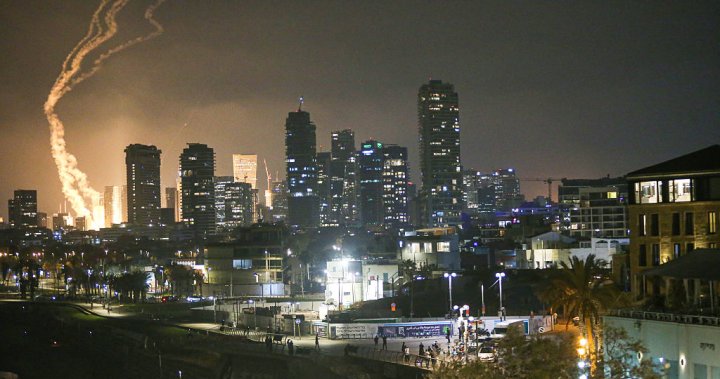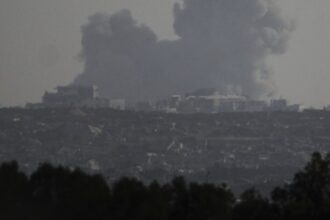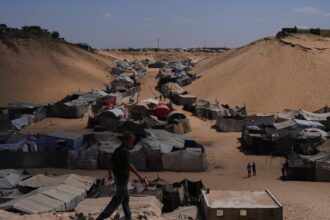In an unprecedented escalation that has shaken the Middle East to its core, Iran launched a barrage of approximately 200 missiles directly at Israel on Tuesday evening, marking a dangerous new chapter in the region’s volatile history. As the skies over Tel Aviv filled with interceptions, the world watched with bated breath as decades of hostility crystallized into a direct military confrontation between the two adversaries.
The missile attack, which Iran’s Revolutionary Guard officially claimed responsibility for, was described by Tehran as retaliation for Israel’s strike on an Iranian consular building in Damascus earlier this month that killed senior commanders, including Gen. Mohammad Reza Zahedi. Iranian state television broadcast footage of missiles launching into the night sky, with officials declaring it “Operation True Promise.”
“What began as proxy warfare has now evolved into direct confrontation,” explained Dr. Amira Hassan, regional security expert at the Royal Institute of International Affairs. “This represents the first time Iran has launched a direct military strike against Israel from its own territory, crossing a threshold many analysts feared but hoped would never be breached.”
Israeli air defenses, including the Iron Dome system, intercepted many of the incoming missiles, with the Israel Defense Forces reporting that some projectiles reached central Israel. Footage from Jerusalem and Tel Aviv showed streaks of light as interceptors met incoming threats. Despite the scale of the attack, initial reports indicated limited casualties, though assessment continues.
Prime Minister Benjamin Netanyahu convened an emergency meeting of Israel’s security cabinet to determine a response, warning that “Iran will pay a heavy price for this aggression.” The precise nature of Israel’s retaliation remains undetermined, but military analysts at CO24 World News suggest it could include strikes against Iranian nuclear facilities or military infrastructure.
The international community has responded with urgent calls for de-escalation. U.S. President Joe Biden stated that American support for Israel’s security remains “ironclad” while diplomats work frantically behind the scenes to prevent further escalation. Meanwhile, oil prices surged nearly 3% following the attacks, reflecting market concerns about potential disruptions to Middle East energy supplies.
“This missile exchange represents a significant departure from the shadow war that has characterized Iran-Israel tensions for decades,” said former Canadian diplomat Robert Mackenzie in an exclusive interview with CO24 News. “Both nations have previously engaged through proxies and covert operations, but this direct military exchange creates a dangerous new paradigm.”
The timing comes amid Israel’s ongoing military campaign in Gaza following the October 7 Hamas attacks, with Iranian-backed groups including Hezbollah, Houthi rebels, and Iraqi militias already engaging Israeli forces. Canada’s Foreign Affairs Minister Mélanie Joly condemned the Iranian missile attack while calling for restraint from all parties.
Economic implications extend beyond oil markets, with global stock indices dropping and defense-related stocks rising. Financial analysts at CO24 Business note that prolonged regional instability could further strain already vulnerable supply chains and economic recovery efforts.
For ordinary Israelis, the attack brought the conflict directly home. “We’ve been through rocket attacks before, but this feels different,” said Tel Aviv resident Shira Cohen, who spent hours in a shelter with her family. “These aren’t the usual rockets from Gaza. These are missiles from a country hundreds of kilometers away.”
As daylight broke over a tense Middle East, the immediate question hanging over the region is not if Israel will respond, but how and when. With both nations possessing significant military capabilities and with nuclear implications potentially at stake, the world watches anxiously to see if diplomatic channels can prevail where decades of animosity have failed.
In this perilous moment, perhaps the most crucial question remains: Can the international community find the leverage and influence necessary to pull these adversaries back from the brink of a regional war that would have devastating consequences far beyond the Middle East?










